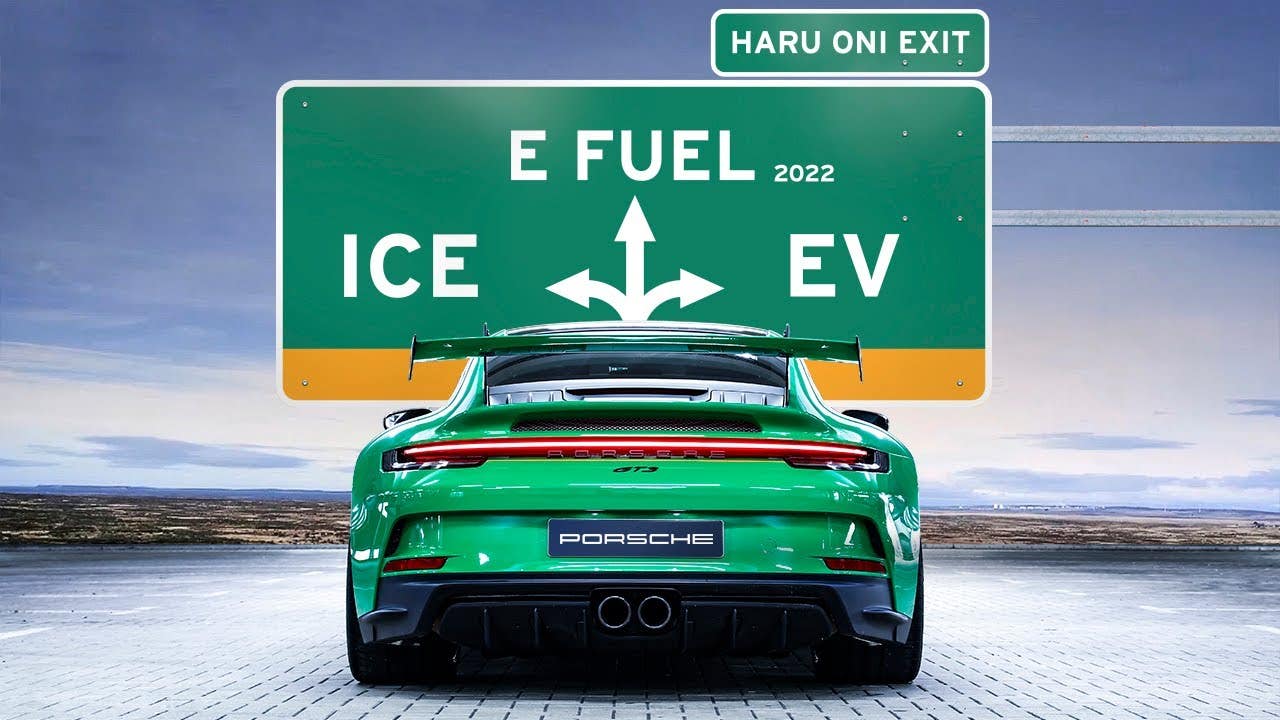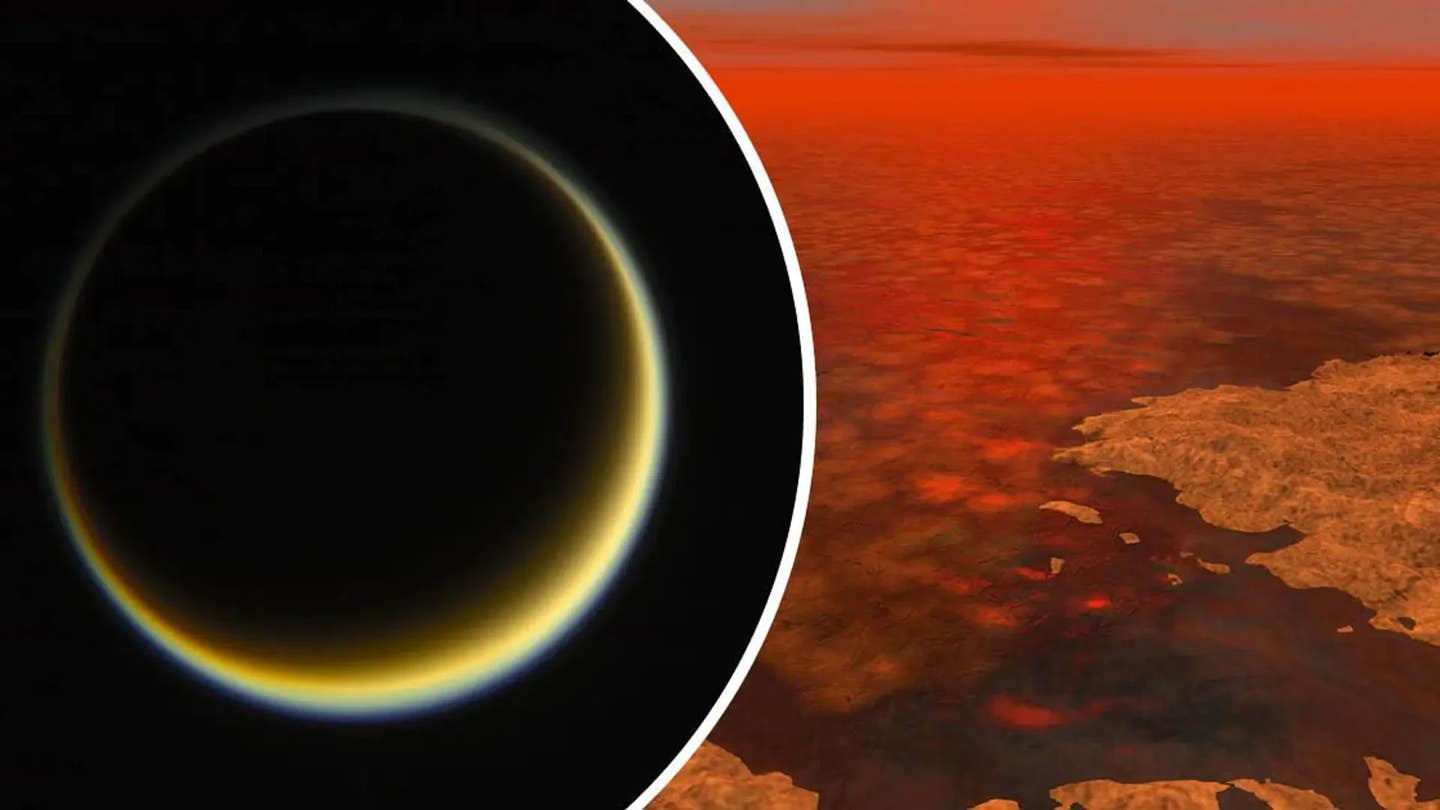Porsche launches a clean eFuel made from CO2, water and wind energy
eFuels made from water and carbon dioxide using wind energy enable the nearly CO2-neutral operation of petrol engines.

[Apr. 9, 2023: Staff Writer, The Brighter Side of News]
eFuels made from water and carbon dioxide using wind energy enable the nearly CO2-neutral operation of petrol engines. (CREDIT: Creative Commons)
Porsche and international partners working with the Chilean operating company Highly Innovative Fuels (HIF) have started the industrial production of synthetic fuels.
In the presence of Chilean Energy Minister Diego Pardow, the ‘Haru Oni’ pilot plant in Punta Arenas (Chile) was officially opened today with executives and dignitaries performing the ceremonial fuelling of a Porsche 911 with the first synthetic fuel produced at the site. eFuels made from water and carbon dioxide using wind energy enable the nearly CO2-neutral operation of petrol engines.
“The potential of eFuels is huge. There are currently more than 1.3 billion vehicles with combustion engines worldwide. Many of these will be on the roads for decades to come, and eFuels offer the owners of existing cars a nearly carbon-neutral alternative. As the manufacturer of high-performance, efficient engines, Porsche has a wide range of know-how in the field of fuels,” adds Michael Steiner, Member of the Executive Board for Development and Research at Porsche AG.
eFuel is a synthetic fuel that is made from water, renewable electricity, and carbon dioxide, and is designed to be used as a drop-in replacement for gasoline in Porsche's internal combustion engines. It is produced using a process called power-to-liquid (PTL), in which renewable electricity is used to convert water and carbon dioxide into a liquid fuel.
Related Stories
One of the key benefits of Porsche eFuel is its low carbon emissions. The fuel is produced using renewable electricity, which means that it does not generate any carbon emissions during the production process. When it is burned in an engine, it releases only the carbon dioxide that was used to make it, which means that it has a significantly lower carbon footprint than gasoline.
Porsche eFuel is also designed to be compatible with existing infrastructure, meaning that it can be used in any vehicle that currently runs on gasoline. It can be pumped at a filling station just like gasoline, and does not require any modifications to the vehicle.
Porsche is currently testing eFuel in a number of its vehicles, including the 911 GT3 and the Panamera. In these tests, the fuel has demonstrated impressive performance, with acceleration and top speed similar to that of gasoline.
Punta Arenas is also located close to the Strait of Magellan. From the port of Cabo Negro, the synthetic eFuel can be transported just like traditional fuels all over the world. (CREDIT: Porsche)
Porsche is also planning to use eFuel in its hybrid and electric vehicles, as it can help to extend their range and reduce their carbon footprint.
Overall, Porsche eFuel is an exciting development that has the potential to significantly reduce carbon emissions from the transportation sector. It is a clean, renewable fuel that can be used in any vehicle that currently runs on gasoline, making it a viable alternative to fossil fuels.
Barbara Frenkel, Member of the Executive Board for Procurement at Porsche AG, and Michael Steiner, Member of the Executive Board for Development and Research at Porsche AG, fuel a Porsche 911. (CREDIT: Porsche)
In the pilot phase, eFuel production of around 130,000 litres per year is planned. Initially the fuel is to be used in lighthouse projects such as the Porsche Mobil 1 Supercup and at Porsche Experience Centers.
After the pilot phase, the first scaling will take the project in Chile up to a projected 55 million litres per year by the middle of the decade. Around two years later the capacity is expected to be 550 million litres.
The eFuel will be used in the Porsche Mobil 1 Supercup racing series. (CREDIT: Porsche)
Porsche will first use eFuels in special projects, including as the fuel for the Porsche Mobil 1 Supercup racing series. It currently costs $45 per gallon to make, but is projected to cost less than $8 per gallon by 2026.
The south of Chile offers ideal conditions for the production of eFuels, with the wind blowing for around 270 days a year and enabling the wind turbines to operate at full capacity. Punta Arenas is also located close to the Strait of Magellan. From the port of Cabo Negro, the synthetic eFuel can be transported just like traditional fuels all over the world, and be distributed using the existing infrastructure.
For more science and technology news stories check out our New Innovations section at The Brighter Side of News.
Note: Materials provided above by The Brighter Side of News. Content may be edited for style and length.
Like these kind of feel good stories? Get the Brighter Side of News' newsletter.
Joseph Shavit
Science News Writer, Editor-At-Large and Publisher
Joseph Shavit, based in Los Angeles, is a seasoned science journalist, editor and co-founder of The Brighter Side of News, where he transforms complex discoveries into clear, engaging stories for general readers. With experience at major media groups like Times Mirror and Tribune, he writes with both authority and curiosity. His work spans astronomy, physics, quantum mechanics, climate change, artificial intelligence, health, and medicine. Known for linking breakthroughs to real-world markets, he highlights how research transitions into products and industries that shape daily life.



